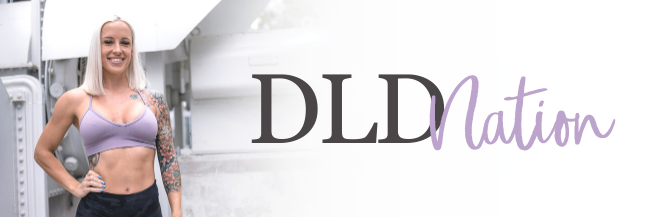
Today we're talking about why we should consume food prior to caffeine!  This is crucial for managing stress in the body and preventing any negative physiological & psychological effects. Eating before consuming caffeine helps in stabilizing cortisol, supporting its natural day to day cycle, and providing readily available energy to support blood sugar. Let's break it down 
|
|
|
|
|
|
Why is this important?
The human body does not physiologically distinguish between good and bad stress. For example, the human body will perceive the stress of financial insecurity the same as heavyweight training sessions. For this reason, being aware of the totality of perceived stress, as well as how caffeine be perceived as a stressor, is instrumental in protecting the functionality of the adrenal glands and supporting a healthy lifestyle.
|
|
|
|
|
|
The science behind this:
Caffeine acts on the adrenal glands to secrete cortisol. Cortisol peaks in the early morning. The overconsumption of caffeine can thus alter the body's circadian rhythm and have adverse effects on cortisol secretion and blood sugar regulation, because consuming coffee before food elevates cortisol secretion when cortisol is already at its peak. With cortisol levels even higher and the body in a fasted state, the body will adapt to meet the energy demands and struggle to maintain optimal hormone health. Many individuals could be fasting anywhere from 10+ hours by the time they have had their last meal and their cortisol spikes in the morning, waking them. Adding coffee to this mix on an empty stomach is not ideal!
In a research study published in the British Journal of Nutrition, coffee consumed before breakfast substantially increased the blood sugar response to breakfast (when it was consumed) by 50%. The reduction in glucose tolerance that is demonstrated can be attributed to a few things, but most specifically to the ingestion of caffeine elevating cortisol, which increases the dysfunction in glucose metabolism.
|
|
|
|
|
Biofeedback that may indicate health issues from persistently elevated stress & cortisol:
- Decreased quality and/or quantity of sleep
- Potential GI upset, cramping, diarrhea
- Increased anxiety in the mornings
- Low energy, fatigue, brain fog (this is most specifically due to no consumed calories)
- Weak performance in morning workouts
- Jitters
- Energy crashes after the first meal of the day/mid-afternoon
- Chronically elevated cortisol symptoms
- Slowed healing
- Weight gain, particularly around the midsection, upper back
- Rounding of the face
- Easy bruising
- Flushed face
- High blood pressure
- Muscle weakness
- Headache
- Difficulty concentrating
- Acne
- Thinning skin
- Insomnia
- Irritability and mood swings
- Anxiety or depression
- Low libido or menstrual cycle changes
|
|
|
|
|
|
What if you don't have an appetite in the morning?
Cortisol and caffeine are both appetite suppressants. In addition, individuals who have historically consumed caffeine before food, or have a long history of restricted caloric intake, will often experience diminished hunger cues and say they are never hungry in the morning. This may serve as an indicator that your body is experiencing stress, your metabolism may need additional support, and/or, you have "trained" your body to not expect food in the mornings. Either way, diminished hunger cues in the mornings are not necessarily trustworthy nor do they confirm that the body does not need glucose from food at that time.
|
|
|
|
|
|
Considerations for caffeine and food consumption:
Ideally, you want to eat 30-60 minutes upon waking up and before caffeine ingestion. Eating something small and slowly increasing your intake into a larger more balanced breakfast is a good place to start. Even 100 calories to start is fine. Hunger cues will normalize as the body adapts, and feeling hungry upon waking and eating will become a much more natural behavior. This may take weeks or even a couple of months, but rest assured it will get easier and easier to eat breakfast. Before you know it, your body will crave breakfast first thing in the morning accompanied by strong, healthy hunger cues. And your hormones will thank you, too!
|
|
|
Use left/right arrows to navigate the slideshow or swipe left/right if using a mobile device

